Long-Term Rental Property Management Banking Tips | Secrets Spilled
Discover key banking strategies for long-term rental property management, enhancing financial efficiency and oversight in my operations
December 28, 2023
Benjamin

As a property manager, you likely already know how important it is to keep track of your finances. But with so much on your plate, it can be overwhelming to know where to start.
In this blog post, we'll dive into the nitty-gritty of understanding property management banking and explore trust account terminology. We'll also give you some practical tips on choosing the right bank account, tracking expenses for rental properties, and using accounting software to streamline your work.

Understanding Property Management Banking
Managing rental properties demands financial expertise, simplified through proper banking. Understanding property management banking is crucial for seamless operations.
A financial institution attuned to property management needs is essential for success. The distinctive requirements necessitate a specialized banking approach. Property management banking involves managing rental income, security deposits, and property expenses.
The Importance of the Right Tenant Bank Account

Choosing the best bank account is paramount for property management accounting. A tailor-made business account streamlines financial management. An exclusive operating account for property business expenses offers financial clarity. Trust accounts are vital for holding security deposits and rental income separately, in compliance with state laws and best practices.
Trust Account
When managing rental properties, trust accounts become vital for holding funds in trust for others, ensuring security and transparency for tenant funds. These accounts not only build trust with property owners and tenants but also provide financial security to property management companies and rental property owners. Understanding the unique characteristics and financial impact of trust accounts is essential, considering their role in real estate and bookkeeping.
Property Manager Banking Tips #1: Choosing a Property Management Bank Account
Choosing the right property management bank account plays a significant role in ensuring accurate financial statements. Researching different accounts is crucial for property managers to find the best fit. It's essential to consider FDIC insurance and align property management bank accounts with industry best practices and financial regulations. Moreover, having separate accounts for personal funds is a best practice that shouldn't be overlooked.
Banking Tips for Rental Property Owners/Landlord

Exploring different bank account options is essential for rental property owners to efficiently manage their income. It helps them handle cash flow and simplifies tax time. Implementing proper banking practices protects owners from personal liability and safeguards their financial interests.
Understanding enterprise bank accounts, trust accounts, and general business accounts is crucial. It triggers a simple task of bookkeeping and managing invoices, receipts, and leases effectively. Finding the right bank is akin to having a strong relationship with your CPA.
Regulations to Keep in Mind
When managing tenant funds, adhering to state laws and regulations is crucial. Compliance with legal requirements safeguards tenant funds and ensures the legal and financial security of rental property owners. Understanding state laws mitigates potential risks associated with Long-Term Rental property management banking.
Staying informed about regulations protects both rental property owners and property managers, triggering a smooth and secure real estate management process.
Ensuring FDIC Insurance for Your Trust Accounts
As a property manager, it's crucial to secure FDIC insurance for trust accounts, providing financial security and peace of mind for tenant deposits and rental income. Verifying FDIC coverage safeguards tenant funds from potential financial risks, ensuring transparency and security in property management.
Understanding the necessity of FDIC insurance for trust accounts protects both landlords and tenants, offering reassurance in an uncertain real estate landscape.
The Transition Process to a New Bank
Transitioning to a new bank involves the transfer of trust accounts, rental income, and security deposits. Property managers need to follow due diligence when moving trust accounts to a new bank. Careful consideration of financial operations is essential during this transition.
Updating rent roll and financial records is necessary after moving trust accounts. Understanding the process ensures a seamless shift for property management operations.
Exploring Trust Account Terminology

Decoding trust account terminology simplifies financial management in real estate. It encompasses beneficiaries, personal accounts, and cash flow. Understanding this terminology is vital for landlords and property managers. This includes unique terms like security deposits, enterprise banks, and accounting methods.
Trust account terminology may trigger some simple tasks such as bookkeeping, managing invoices and receipts, and ensuring compliance with general business account regulations.
Property Manager Banking Tips #2: familiarize yourself with common trust account terminologies.
From property management accounting to the intricacies of security deposits, understanding these terms simplifies financial management for property managers and rental property owners alike.
The unique terminology specific to property management, such as rental income and financial institution guidelines, is crucial. Embracing these terminologies is an essential step in establishing a solid foundation in property management banking, ensuring efficient operations and compliance.
Tracking Expenses for Rental Properties
Keeping a tab on rental property expenses is crucial for financial management and monitoring cash flow. Categorizing expenses helps understand where the money is spent, aiding in tax preparation and compliance.
Implementing a consistent method for expense tracking is essential for efficient management. It's a simple task but triggers a significant impact on the general business account and real estate profitability. Using apps like Clearing can streamline the bookkeeping processes.
The Need for Tracking Expenses
Keeping a close eye on rental property expenses ensures financial transparency and accountability. Understanding where the money goes helps in making well-informed financial decisions. Tracking expenses provides insights into cost management and budgeting, aiding in identifying potential areas for cost savings and optimization. Moreover, it establishes financial discipline and responsibility, essential for efficient property management.
Techniques for Effective Expense Tracking

Implementing streamlined expense tracking using digital tools like accounting software such as Clearing can be a game-changer. Structured systems for organizing and recording rental property expenses are crucial for financial clarity.
Reconciling bank statements with expense records regularly ensures accuracy, while leveraging automation for recurring expenses minimizes manual efforts. Additionally, adopting best practices for expense categorization and documentation is highly beneficial, ensuring efficient expense tracking and management.
Tools to Simplify Property Management Banking and Expense Tracking
Accounting software plays a pivotal role in simplifying property management banking, streamlining work through digital tools enhances efficiency, and leveraging technology reduces the administrative burden of expense tracking.
Property management software may sometimes provide comprehensive financial reporting capabilities (not always the case), while financial apps like Clearing enable real-time tracking of property-related expenses. Embracing these tools not only simplifies the accounting process but also triggers simplicity in managing general business accounts, family trusts, and invoices.
Role of Accounting Software in Streamlining Work
In streamlining work, accounting software plays a vital role by centralizing financial data, automating repetitive tasks, and providing real-time financial reporting capabilities. Integration with bank accounts also facilitates streamlined financial workflows, while access to historical financial data aids in trend analysis and forecasting.
These features enhance efficiency and save time, making accounting software like Clearing a valuable tool for a property managers' banking needs.
Building a Strong Foundation in Property Management Banking
Establishing a strong base in property management banking is key to long-term success. Understanding accounting principles specific to real estate and employing an appropriate accounting methodology is critical.
Tailoring a chart of accounts to individual needs ensures accurate financial reporting, while compliance with state laws is a trigger for maintaining financial stability. Moreover, maintaining a property management trust account is a simple task that brings transparency to financial operations.
Steps to Lay a Solid Foundation
When establishing your property management banking foundation, open a dedicated business bank account for operations. Set up best practices for accounting, including trust account management, and implement a tailored chart of accounts.
Ensure compliance with financial institution requirements for trust accounts and familiarize yourself with industry standards for financial management. This foundational step is crucial for maintaining transparency and achieving success in property management.
Property Manager Banking Tip #3: Avoid mixing personal and business funds to simplify accounting.
Regularly reconcile bank accounts to prevent financial discrepancies. Inaccurate financial statements could trigger IRS audits or legal issues.
Failure to maintain a trust account can lead to severe penalties. Non-compliance with accounting best practices may result in financial mismanagement. Keeping these property manager banking tips in mind will help you navigate banking more effectively.
What Should You Ask Your Business Banker?
When speaking to your business banker, make sure to ask about FDIC insurance coverage for accounts. Inquire about account options tailored to the rental industry and seek guidance on setting up trust and operating accounts. Understand the tax implications of different accounts and clarify any unfamiliar terminology.
Need more property manager banking tips?
To sum it up, property management banking is a crucial aspect of running a successful rental property business. It's important to choose the right bank account that meets your specific needs and complies with regulations.
If you need more property manager banking tips or wants help with your finances, partner with Clearing today! Rest assured your problems will get cleared away quickly and effectively.
Clearing is a Financial Technology Company, not a bank.

.png)
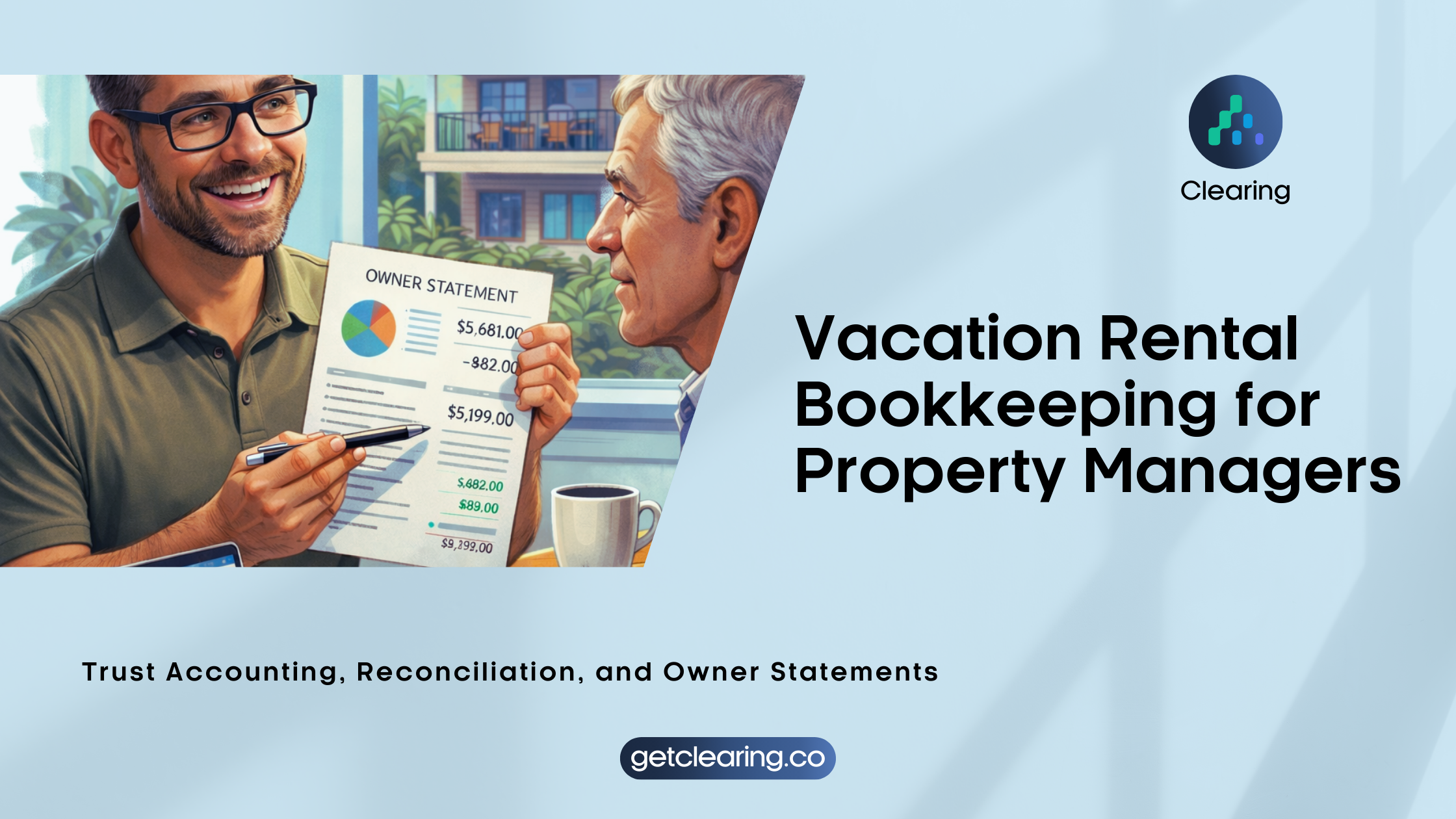



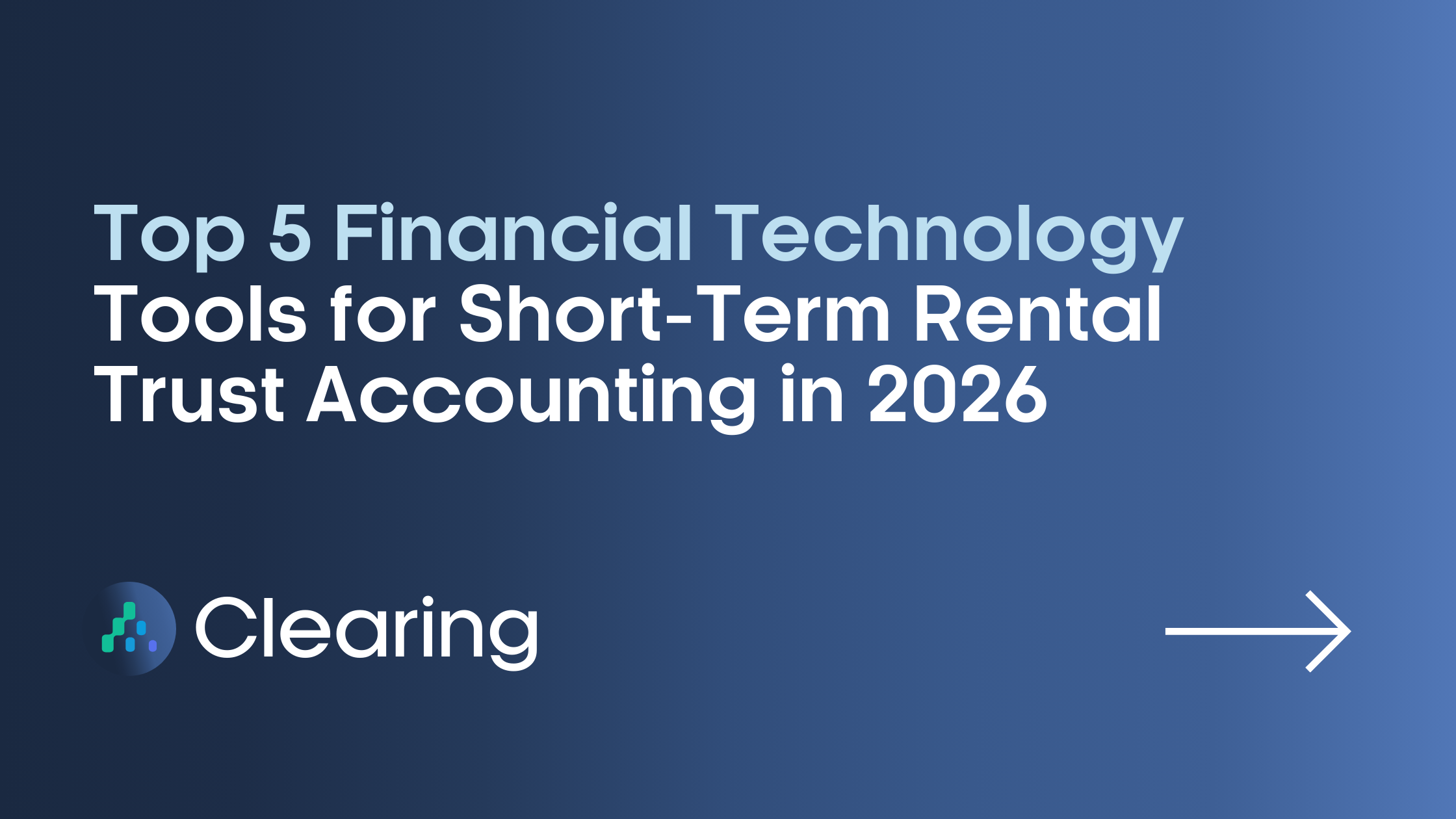

.png)
.png)
.png)
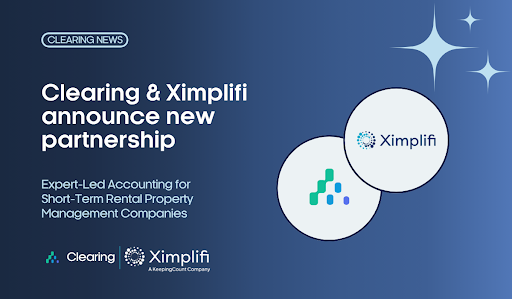
.png)
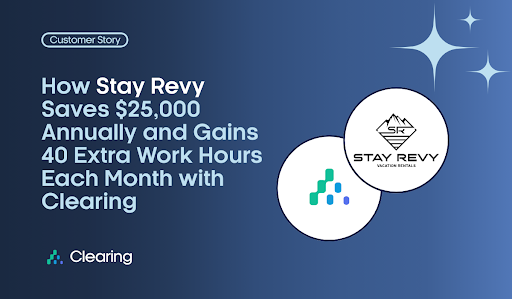
.png)
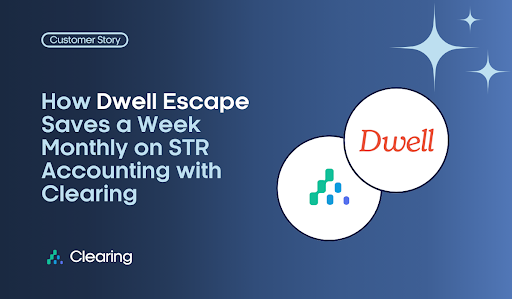
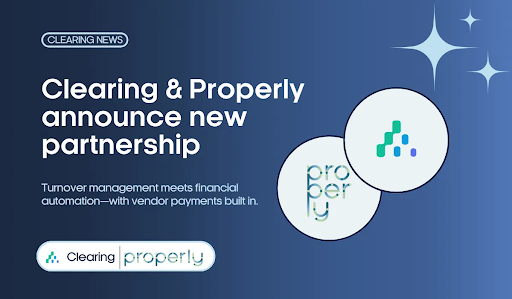
.png)
.png)
.png)
%20(1).png)
%20(1).png)
%20(1).png)
.png)
%20(2).png)
%20(1).png)
%20(1).png)
.png)

.png)
.png)
.png)
%20(1).png)
.png)
.png)
.png)
.png)
.png)
.png)
.png)
%20(1).png)
.png)
.png)
.png)
%20(1).png)
%20(1).png)
%20(1).png)








.jpg)
%20(1).png)
%20(1).png)
%20(2).png)
%20(1).png)

%20(1).png)
%20(1).png)
%20(1).png)



%20(1).png)
%20(1).png)
%20(1).png)
%20(1).png)
%20(1).png)


%20(1).png)
%20(1).png)
%20(1).png)
%20(2).png)
%20(2).png)



%20(2).png)


%20(2).png)
%20(1).png)
.png)


%20(2).png)
%20(2).png)

.jpg)
.png)
.png)
.png)



.png)